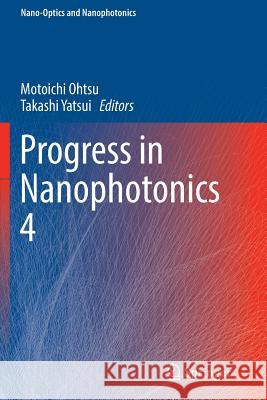Progress in Nanophotonics 4 » książka
topmenu
Progress in Nanophotonics 4
ISBN-13: 9783319840666 / Angielski / Miękka / 2018 / 146 str.
Kategorie BISAC:
Wydawca:
Springer
Seria wydawnicza:
Język:
Angielski
ISBN-13:
9783319840666
Rok wydania:
2018
Wydanie:
Softcover Repri
Ilość stron:
146
Waga:
0.23 kg
Wymiary:
23.39 x 15.6 x 0.89
Oprawa:
Miękka
Wolumenów:
01
Dodatkowe informacje:
Wydanie ilustrowane











